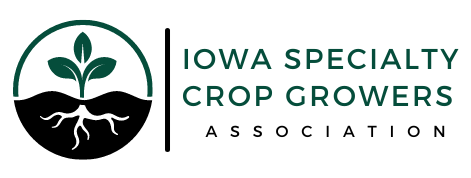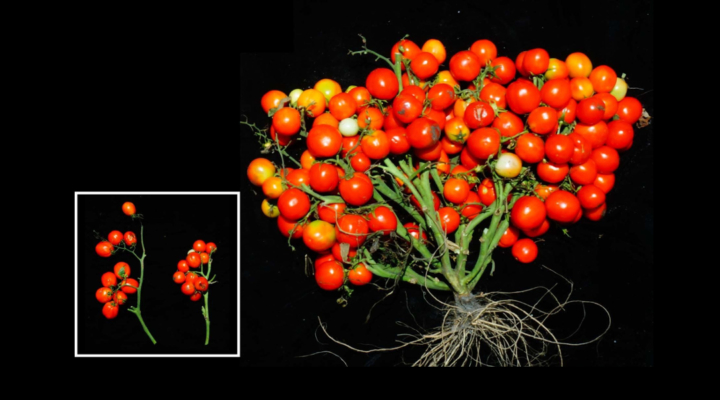Richard Jauron
Extension Horticulturist
515-294-3108
rjauron@iastate.edu
Vegetables in the garden occasionally do things that surprise some gardeners. While unexpected, they’re actually rather common or normal. If you have questions about your own garden, contact horticulture experts by emailing hortline@iastate.edu.
Several of my onions are forming flower heads. Why?
Onions can be grown from seeds, sets or transplants. Flowering is most likely to occur on onions grown from sets. Sets are small, dormant bulbs. Before planting sets, separate the bulbs into two size groups — those smaller than a nickel in diameter and those larger than a nickel. The larger sets often produce a flower stalk and do not produce good-sized bulbs. Use the larger sets for green onions. The smaller sets can be allowed to develop into large, mature onions.
There are small, round, green objects resembling miniature tomatoes on several of my potato plants. What are they?
The small, round, green objects are the true fruit of the potato plant. Tomatoes and potatoes belong to the Solanaceae or Nightshade Family. Plants within a family share certain morphological characteristics. The flowers on tomatoes and potatoes are similar in appearance. Potato fruit are similar in shape (though much smaller in size) to those on tomatoes.
Most flowers on potato plants dry up, drop from the plant, and don’t develop into fruit. The fruit that develop are relatively small and inconspicuous and often go unnoticed by most gardeners. The cultivar ‘Yukon Gold’ fruits more heavily than most other potato cultivars.
Potato fruit are of no value to gardeners. The small fruit should not be eaten as they contain a poisonous alkaloid (solanine). The fruit are not useful for planting purposes as potatoes don’t reproduce true from seed.
Why are some of the fruit on my summer squash misshapen?
Misshapen fruit may develop if pollination is inadequate. When pollination is incomplete, the fruit develops unevenly. Inadequate pollination may be due to low pollinator numbers or unfavorable weather.
Virus-infected plants also may produce small, deformed fruit. Viral diseases cannot be controlled with pesticides. If disease symptoms appear on just a few plants, remove and destroy the virus-infected plants to prevent the further spread of the disease.
–Iowa State University Extension & Outreach

